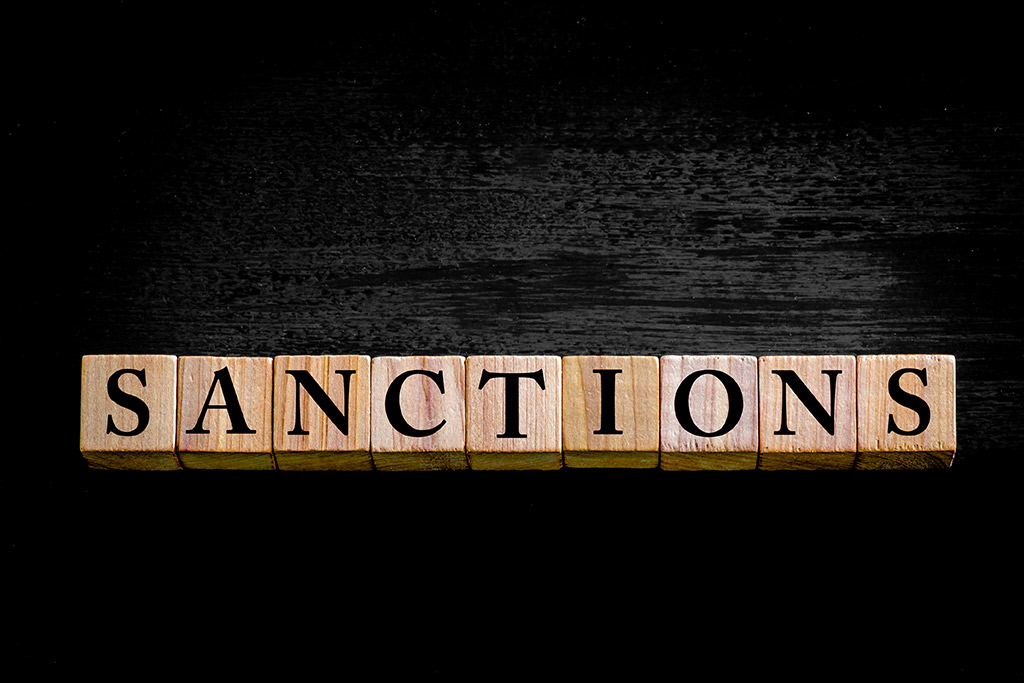EU Sanctions

date: 31/03/2021
By Mihai Keller
In October 2020, the European Commission launched an online platform to support EU SMEs (Small and Medium-Sized Enterprises) interested in business with Iran. Six months after this launch, the Sanctions Due Diligence Helpdesk reports that there is a steady flow of applications and interest from SMEs is higher than ever.
Why was there a need for the helpdesk?
In 2016, in line with the so-called ‘Nuclear Deal’ (Joint Comprehensive Plan of Action, or JCPOA), the EU lifted all economic and financial restrictive measures (sanctions) it had imposed in connection with Iran’s nuclear programme. However, certain EU sanctions on Iran have remained in place to this day. Some of these relate to the non-proliferation of weapons of mass destruction. Others, the EU imposed autonomously in response to serious human rights violations in the country.
While the EU has stuck to its promise to help normalise economic relations with Iran, EU businesses must still be careful not to engage with sanctioned individuals and entities in Iran, and not to trade in any of the prohibited goods. Sometimes this can be difficult, especially for SMEs, which have more limited resources.
To help EU businesses navigate the remaining EU sanctions on Iran, the Commission set up the Sanctions Due Diligence Helpdesk. Its services are intended to help reduce transaction costs and, in turn, encourage EU operators to do business in Iran in full compliance with EU legislation. The helpdesk also serves to reassure European banks, which may be reluctant to handle transactions involving Iran, by providing well-researched documentation on prospective Iranian business partners.
The work of the helpdesk fits well into the Commission’s key role of ensuring the uniform implementation of sanctions throughout the EU. And by allocating significant funds to improving EU-Iran trade, it also demonstrates the EU’s continued commitment to the JCPOA.
What is the helpdesk and what does it do?
The helpdesk is an online, free-of-charge platform created at the initiative of the European Commission. It carries out due diligence on specific business projects, to check if they comply with EU sanctions.
A team of private contractors specialised in EU project management, EU law and Iran-based research and consulting ensures the helpdesk’s day-to-day operations, including the all-important due diligence checks. The Commission’s Service for Foreign Policy Instruments takes care of financing and contract management (through the EU Partnership Instrument), while DG FISMA contributes with its know-how in the area of EU sanctions.
In practice, EU SMEs submit requests using the forms on the website, enabling the helpdesk team to conduct up to three levels of due diligence. Level 1 consists of standard checks based on initial information. In case of red flags or missing details, the assessment may move to Level 2, including research in local Farsi databases. For the more complicated cases, Level 3 can lead to an investigation on the ground, with interviews and site visits in Iran. The combined result of these checks is an output report setting out the most important findings. Compliance with GDPR (General Data Protection Regulations) and business confidentiality are of utmost importance throughout this process.
Besides its central task of conducting due diligence checks, the helpdesk publishes guides, organises training courses and webinars and supports various business matchmaking events. It also works closely with bodies such as diplomatic missions, Chambers of Commerce, trade promotion agencies, and the Instrument in Support of Trade Exchanges (INSTEX), which might be able to assist SMEs with issues falling outside the scope of the helpdesk’s services.
Six months after its launch, the helpdesk is fully functional. Numerous applications for due diligence have been received, and the analysis provided in return is bringing concrete support to the improvement of trade with Iran.
Mihai Keller is a policy officer at the European Commission
More information:
The Sanctions Due Diligence Helpdesk can be accessed at https://sanctions-helpdesk.eu
The EU Sanctions Tool is a free-of-charge online platform that enables simple self-assessment on compliance with EU sanctions. Managed directly by the Commission, it was launched in August 2020, and mainly caters to economic operators at an earlier stage of their involvement in Iran. The Sanctions Tool is available at https://sanctions-tool.ec.europa.eu
For more details on EU sanctions, please consult the Sanctions Map at https://sanctionsmap.eu
